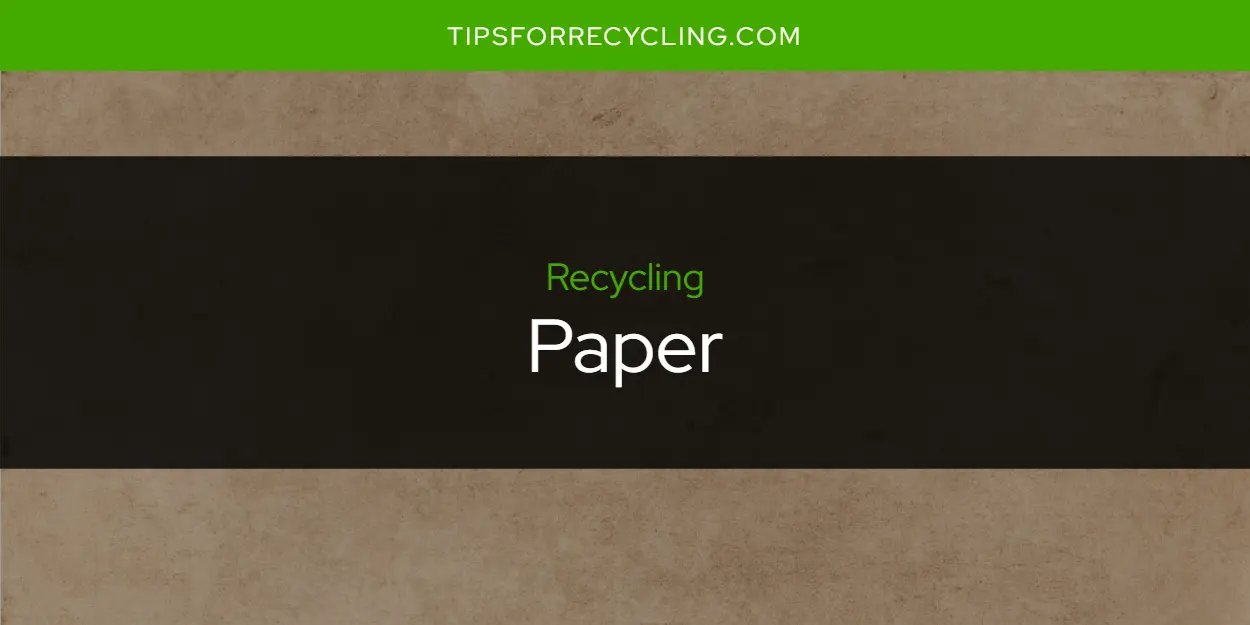Is Paper Recyclable?

Recycling paper is one of the most environmentally friendly activities you can do. Not only does it help save energy and resources, but it also reduces your carbon footprint and helps protect our planet from further damage. It’s estimated that recycling used paper prevents thousands of trees from being cut down every year.
Of course, not all types of paper are recyclable. Office paper, newspapers, magazines, cardboard boxes and phone books are all accepted by most recycling centers. However, other types of paper such as waxed or contaminated paper may need to be thrown away in the trash since they could contaminate the recycled materials. Make sure to check with your local recycling center to find out what type of papers they accept before throwing items away in the trash.
See the below map for locations where you can recycle paper.
Yes! Depending on where you live, you may be able to make money by recycling papers. Some states offer financial incentives for those who recycle their papers such as tax credits or grants. You can also sell your used papers to some scrap dealers for cash or donate them to charities and get a tax deduction. Additionally, if you compost your own food scraps or yard waste at home you can use the resulting nutrient-rich soil for gardening which will save you money in the long run.
Similarly, see if you can recycle paper masks.
Aside from saving energy and resources, recycling used paper has a number of benefits:
Reduces deforestation: Paper comes from trees so recycling prevents trees from being cut down unnecessarily;
Saves landfill space: By reducing waste going into landfills we can conserve precious space;
Creates jobs: Collecting and sorting used papers creates new jobs in many areas across the country;
Reduces air pollution: Burning used papers releases harmful particles into the air so by reusing them we can minimize air pollution;
Generates energy: Incinerating treated used papers produces electricity which can be utilized in many ways;
Produces compost: Composting treats used papers and converts them into rich soil that can be used for farming and gardening purposes;
Similarly, see if you can recycle paper shreddings.
Recycling paper requires careful handling since it’s made up of small fibers that are easily damaged if mishandled during collection or transport. Here are some tips on how to recycle safely:
By following these simple guidelines, you’ll ensure that your recyclables reach their destination safely without any incidents occurring along the way!
Similarly, see if you can recycle paper bags.
Not recycling your used papers has an important impact on our environment since it contributes to global warming and increases pollution levels worldwide. Here are some of the impacts not recycling can have on our planet:
Increases waste going into landfills which pollute nearby waterways due to leaching chemicals released over time;
Releases more greenhouse gases into our atmosphere due to burning untreated waste materials when too much is collected in one area;
Results in less usable land available due to more landfills needed when not enough is recycled properly;
Contributes heavily to deforestation since fewer trees means less oxygen produced naturally which affects climate change adversely;
Increases water consumption as processing untreated materials require more water than recycled ones do during production processes;
As you can see there are serious consequences associated with not properly disposing your used papers! So always remember to recycle whenever possible – it’s good for both our environment and future generations!